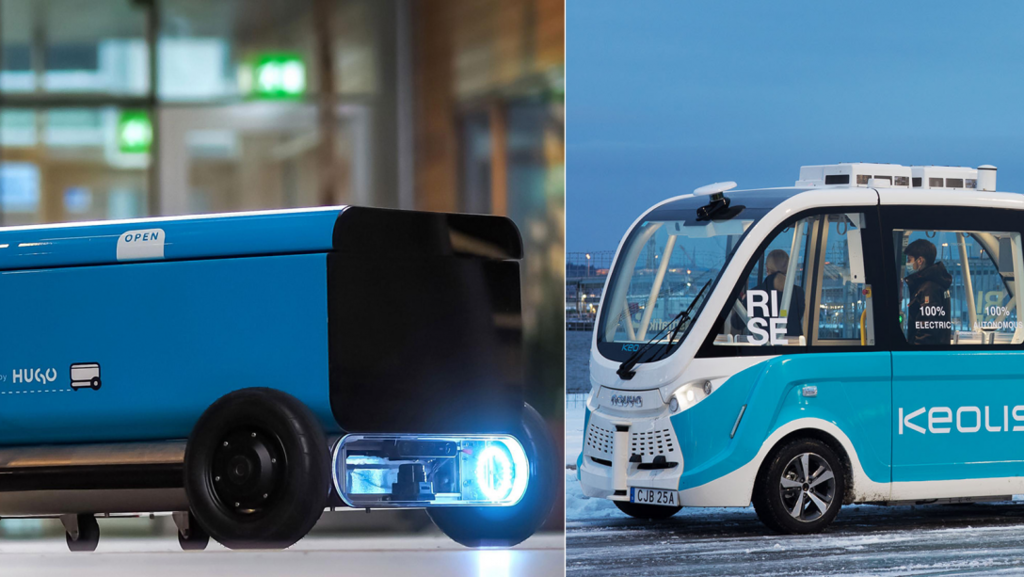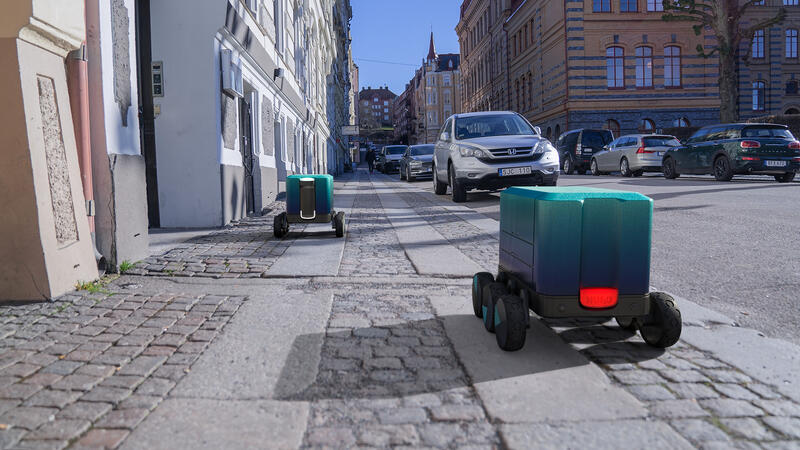Synergetic Autonomous Transport
The project has developed endpoints for autonomous deliveries and connected self-driving minibuses and delivery robots. The goal has been to contribute to making future urban freight and passenger transport more sustainable, efficient, accessible and safe.
Important sub-areas addressed in the project have been vehicle technology, transport efficiency, user perspective, business models and urban development.

In a not too distant future, more and more of our transports will be handled by autonomous vehicles. Especially the last bit of a transport or supply chain – when people have to get from public transport to their final destination or goods have to be transported from a transport hub to the end customer. These last-mile delvieries are often expensive and have a higher negative impact on the environment so there is much to be gained from streamlining these transports.
In recent years, the Drive Sweden projects Shared Shuttle Services (S3) and The Autopilot in Barkarby have tested autonomous, electric shuttle traffic and autonomous goods deliveries have been tested within the HUGO project. But what happens when several different autonomous modes of transport coexist in an urban environment? The project Collaborative Autonomous Transport (SAT) has investigated this, during a six month long test run starting in January 2022. The work has been carried out through investigations and analysis as well as through practical testing at the Chalmers campus in Johanneberg. The project has involved both primary and secondary users through interviews and collaborative idea generation. The consortium has great breadth and is composed of different kinds of expertise and need owners to develop the addressed questions in a multidisciplinary and collaborative manner.
Eighteen project partners – including universities, property owners, software and product developers and other actors within urban development – will jointly explore the issue with focus on areas such as vehicle technology, transport efficiency, user perspective, business models and urban development potential. Visitors to the Johanneberg campus become part of the project through more or less active interaction with the vehicles, when moving on the streets or taking the minibus from one side of the campus.
Download presentations in Swedish from the event which was held in May 2023.
Take part in the final presentation of the project
Time period
January 2022 - June 2023
Contact
Sara Berge, Hugo Delivery
sara@berge.io
Project partners
Akademiska Hus, Chalmers, Chalmersfastigheter, Ericsson, Framtiden Byggutveckling, Urban Transport Administration City of Gothenburg, University of Gothenurg, Hugo Delivery, Johanneberg Science Park, Keolis, Landvetter Södra Utveckling AB, MölnDala Fastighets AB, PostNord, Riksbyggen, Skanska, Tele2, Västtrafik, Wallenstam
Vinnova number
2021-04419
Related projects



